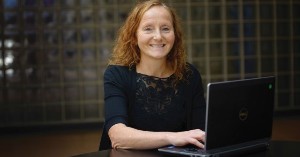Female advisers put off by boozy networking
New Zealand's financial advice industry is suffering a lack of women because they feel pushed out by male-dominated events, such as networking that revolves around drinking, new research has found.
Monday, January 20th 2020, 5:00AM  11 Comments
11 Comments

Researchers from the University of Otago and RMIT University in Melbourne studied the reasons why women were only a small proportion of financial advisers in Australia and New Zealand.
Women are only 20% of Australian and 23.5% of New Zealand "financial advising professionals".
Helen Roberts, a senior lecturer in the University of Otago's department of accountancy and finance, said competitive sales-based structures, servicing client needs, difficulties networking, a dominant masculine management culture and the gendered nature of flexible work were getting in the way of women's financial advice career.
“These factors aren’t necessarily wrong from an employment law perspective, however we’ve discovered they significantly impact career progression and job satisfaction for female advisers,” Roberts said.
Her co-author, associate professor Ros Whiting, said women talked about male-dominated networking events and being uncomfortable with experiences "centred around alcohol".
"Those type of events might work well for men in a male-dominated industry, however for a female adviser they are often a negative experience, and the women prefer to network in other ways."
The authors said women were often the primary family caregiver and it could be difficult for them to attend after-hours events.
Daniel Richards, a researcher at RMIT, said women were using strategies such as finding the "right" manager, receiving mentoring, selective networking and forming partnerships with other advisers.
The study said the industry could help by normalising part-time work opportunities, providing a variety of networking opportunities, promoting changes in culture to champion women and developing strategies to allow women's selective networking techniques to flourish.
Because there were now more women investing, there were opportunities for advisers to do well if the conditions were suitable.
| « The cost of getting it wrong | Mann on a mission to diversify financial advice » |
Special Offers
Comments from our readers
Regarding females being put off by the booziness, first - I am reasonably sure that there may be just as many males who get put off, and second -I have seen some pretty sozzled females at many of these 'networking' functions.
I don't think this is a gender-based argument. It could be applied to all...
Just my 2 cents worth...
What has happened to the concept of integrity?
The truly appalling bit is that this makes it into any media.
Cheers for that (get it?)
Nobody (who actually does this job) runs around claiming this job is easy, or well paid. The main reason any newish adviser drops out is usually because it is in fact not that easy (to find new clients and convert them into a reasonable living) or well paid.
What "events" did these women go to?
This is not the 1980s any more. You're just as likely to run into a vegan and a bottle of Kombucha these days.
I simply cannot believe this sort of Gender based surveying is still going on it is 2020 are we not all equal?
From my perspective don't treat me differently, I love this challenging industry and joined when the female numbers which much lower - I enjoy both the male and female perspective and if I dont' want to attend a meeting because of alcohol I wont but to research such a topic is simply archaic and demoralizing apart from being incorrect - I personally feel there are far less boozy events and way more daytime cuppa tea events.
We are meant to be equal so why would this sort of rubbish be published seriously!!
Booze and networking don't go hand in hand, and the majority of successful networking based advisers don't get sozzled at every opportunity. If they are there a medical term for that!
Many others have already commented in the same way I feel about this.
Another price of poorly justified writing. If the term research is going to be used, at least do it in a way that resembles real research and not just another confirmation biased piece based on a half baked opinion.
Sign In to add your comment
| Printable version | Email to a friend |




I met a number of New Zealand women, who after graduating here in NZ, made the jump over the Tasman to become paraplanners as this is a viable career in Australia and entry into the industry.
Obviously Australia has a much bigger market, higher incomes and has more complex issues for clients to manage, including tax which provides greater opportunities for the industry.
I'm not too sure what was meant in this article regarding "competitive sales-based structures, servicing client needs, difficulties networking - getting in the way of women's financial advice career." I'm pretty sure there is plenty of males that would prefer a comfortable salary and office with a steady stream of prospects waiting outside but that's not the reality of self employment which our industry is based on.